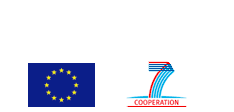TwinBas
Twinning European and third countries river basins for development of integrated water resources management methods
Introduction
TwinBas was an EU-funded project 6th Framework Programme which aims at filling gaps in knowledge and methods in order to enable implementation of a harmonised Integrated Water Resources Management (IWRM) approach that addresses the European Water Initiative.
A key feature IWRM is that solutions are no longer analysed from the perspective of only one area, e.g. water availability. Instead, problems in different water fields are analysed in a coherent manner. The central objective of TwinBas has been to fill gaps in knowledge and methods in order to enable implementation of a harmonised IWRM approach that addresses the European Water Initiative.
By twinning five river basins: the Okavango in southern Africa, the Biobío in Chile, the Nura in Kazakhstan, the Norrström in Sweden, and the Thames in the U.K. and tying together water researchers with key expertise on these rivers, a critical mass of experience and knowledge has been mobilised. An important part of the objective is to build the capacity to carry out IWRM in all the five river basins, building on European approaches to water resources management with the Water Framework Directive in focus, as well as on third countries expertise and experience.
Strategies
"Twinning European and third countries river basins" is the specific FP6 topic addressed by TwinBas. The project was built around integrated water resources management research activities in case studies, carried out on twinned river basins. Partners for Botswana and Kazakhstan participated in the project, and thus the request for participation of African and NIS countries was met. International organisations participated in work package steering groups in order to strengthen the interface with other bilateral or multi-lateral international co-operation actions. The International Network of River Basin Organizations (INBO) participated in these steering groups and the Global Water Partnership (GWP) also participated, mainly through their regional chapters. The twinning concept enabled utilisation of the extensive experience and results from European as well as third countries, as R&D tasks were carried out and methods developed.
The focus of TwinBas was to develop integrated water resources management concepts into tools, guidelines, policies and plans for integrated catchment management in twinned case studies in order to contribute to the objectives of the EU Water Initiative launched in Johannesburg 2002. The project followed the modular approach of the EU Water Initiative, which differentiates between geographical contexts and within these between different thematic priorities, but built on the experiences of the twinned rivers. The EU Water Initiative promotes development that is incremental and demand led from the less developed countries. This approach was adopted in TwinBas to ensure that each component had local ownership and addressed geographical priorities identified within the region. TwinBas also included analysis of global warming effects in water resource planning methods.
For more information see the project webpages at http://ivl.dataphone.se/twinbas/

